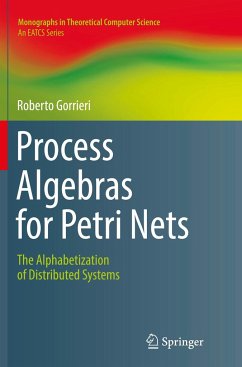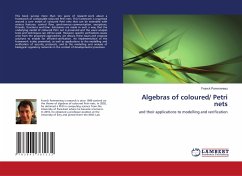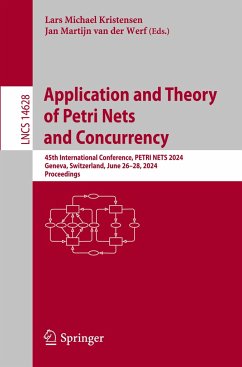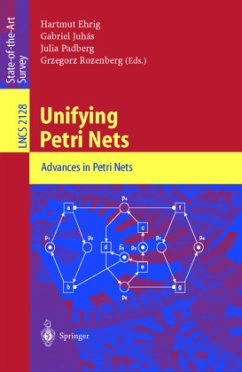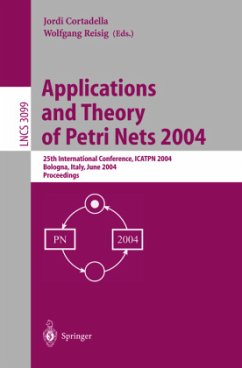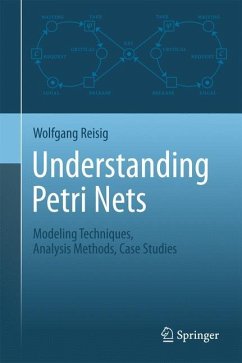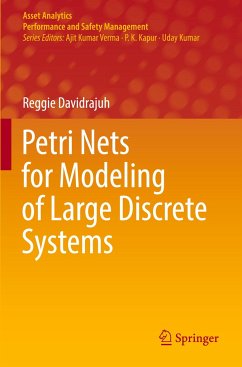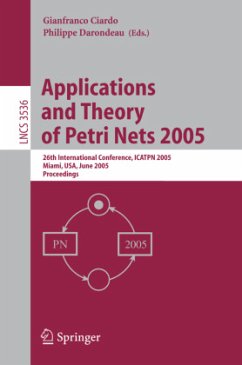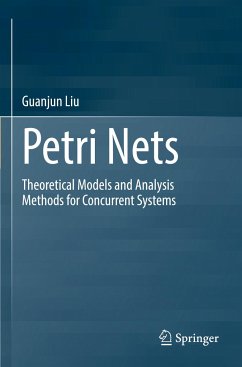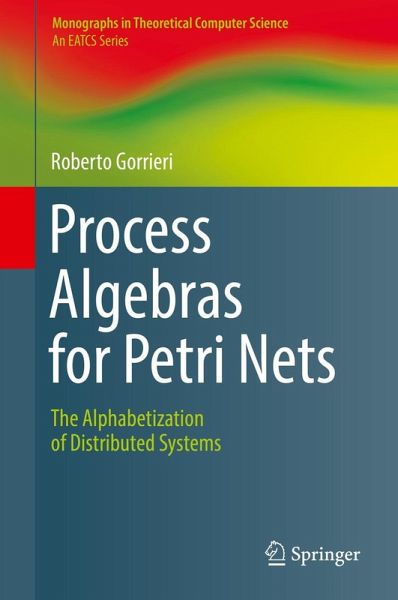
Process Algebras for Petri Nets
The Alphabetization of Distributed Systems
Versandkostenfrei!
Versandfertig in 6-10 Tagen
61,99 €
inkl. MwSt.
Weitere Ausgaben:

PAYBACK Punkte
31 °P sammeln!
This book deals with the problem of finding suitable languages that can represent specific classes of Petri nets, the most studied and widely accepted model for distributed systems. Hence, the contribution of this book amounts to the alphabetization of some classes of distributed systems. The book also suggests the need for a generalization of Turing computability theory.It is important for graduate students and researchers engaged with the concurrent semantics of distributed communicating systems. The author assumes some prior knowledge of formal languages and theoretical computer science.
This book deals with the problem of finding suitable languages that can represent specific classes of Petri nets, the most studied and widely accepted model for distributed systems. Hence, the contribution of this book amounts to the alphabetization of some classes of distributed systems. The book also suggests the need for a generalization of Turing computability theory.
It is important for graduate students and researchers engaged with the concurrent semantics of distributed communicating systems. The author assumes some prior knowledge of formal languages and theoretical computer science.
It is important for graduate students and researchers engaged with the concurrent semantics of distributed communicating systems. The author assumes some prior knowledge of formal languages and theoretical computer science.





